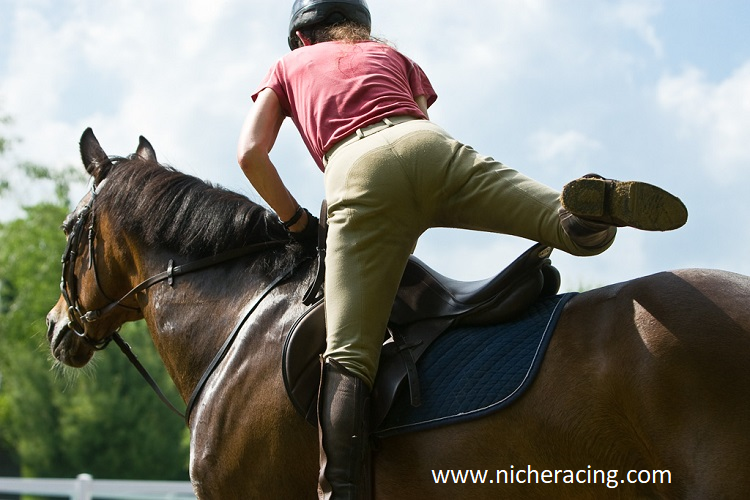Horses, splendid creatures in many aspects, have been an important part of history and human friends for thousands of years. Horses have played a vital role in shaping our civilization. Their contributing roles range from transportation and agriculture to their companionship and efficiency in various sports, which have always helped humans a lot. One of the most interesting aspects of horses is their age and lifespan. In this article, we will explore the captivating world of horses and their lifespan. We will highlight some remarkable facts related to their age and lifespan, discovering their journey from birth to old age.
Interesting facts about Horse Age and Life Span
Fact 1: Age Calculation
Horse’s age calculation is a unique and interesting way of calculating their age. Their age is not calculated as human age, it has a different method. A horse’s age is measured traditionally in hands,” which is a measurement unit equal to four inches. Like other animals, horses’ standard place to measure their height is from the ground to their withers.
Horses are generally considered one-year-old every January 1st, rather than aging on their actual birth date. This method is popular because foals usually foals give birth in the spring. This system was created to help maintain the standardized age classifications of the horses. This method is especially helpful for competitive purposes.
Fact 2: Rapid Growth and Maturity
Horses are creatures that experience rapid growth and development during their early years. In the first year of their lives, horses grow significantly, gaining almost 90% of their adult height. In the second year, most horses reach their full height potential. However, they continue to develop muscle mass and overall body strength.
Horses are mostly considered mature at the age of four, this is the age when their musculoskeletal system becomes fully developed. However, their growth plates continue to close until they are 6 years old, solidifying their skeletal structure.
Fact 3: Lifespan Variability
The various factors, such as breed, genetics, care, and living conditions, affect and vary the horse’s lifespan. On average, horses live around the age of 25 to 30 years Thus, it is the common average horse age. However, sometimes they can also live until 40, depending on the above-mentioned factors.
Fact 4: Oldest Recorded Horse
The oldest horse recorded in the Guinness World Records till now is “Old Billy”. He is a 19th horse who has reached the remarkable age of 62, the maximum as of now. He also worked as a barge horse, transporting goods along the canals of England. His long life may be due to his genetics or his relatively light workload in comparison with other horses.
Fact 5: Influence of Size and Breed
The size and breed of a horse also affect the lifespan of the horse. For example, ponies have a longer life than other larger horse breeds. Most of the smaller breeds live longer than the larger ones. Additionally, certain breeds are popular for their longevity. Some breeds, for example, Arabian horses, are known for their endurance and can live well into their 30s.
Fact 6: Dental Indicators of Age
The teeth of the horses can also provide valuable insights about their approximate age. Young horses have shedable teeth that are supposed to be replaced by their permanent teeth. The number of permanent teeth and their wear also help in estimating a horse’s age. However, this method becomes more accurate as the horses grow older.
Fact 7: Senior Care
Horses in their late 20s and 30s are considered seniors. At this age, they require special and extra care for their health and well-being. This includes paying more attention to proper nutrition, regular veterinary check-ups, and dental health. They need a focused healthcare routine as they might face medical challenges such as arthritis, dental issues, and weight management issues.
Fact 8: Factors Affecting Lifespan
Several factors contribute to the lifespan of a horse. Genetics also plays a crucial role as some bloodlines have longevity inherited from the past. Additionally, diet and nutrition are also essential to making them live longer and healthier lives. Regular exercise, mental power, and social interaction are equally important for extending a horse’s lifespan.
Fact 9: Emotional Bonds and Longevity
The longevity of horses also depends on their social interactions and emotional bonds, like many other animals. The more they receive love, attention, and companionship, the more this enhances their well-being and extends their lifespan. Moreover, this emotional connection can even impact the health of the owners and caretakers.
Fact 10: Equine Geriatric Care
The treatment of elderly horses has improved as a result of developments in veterinary medicine. Today, senior horses can benefit from specialized meals, vitamins, and treatments tailored according to their needs. Geriatric horse care must include regular health examinations, dental treatment, and farrier visits.
Conclusion
Horse lifetime and age are interesting topics, and many fascinating statistics about them show how complicated these amazing animals are. Horses continue to enthral us with their unique evolution from fetus to senior, from their quick growth and development to the impact of genetics and care on their lifetime. We are better able to provide these amazing animals with the care and attention they require so they may live their lives to the fullest as we learn more about horse health and wellbeing.

